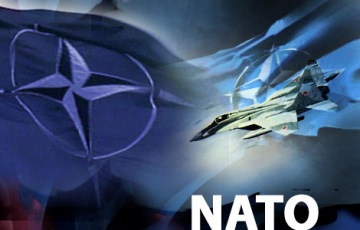At the moment, about half those supplies come through Pakistan. The Pakistanis only closed, for about a day, one of the two main routes. About 30 percent of the supplies come in via Central Asia railroads, and another comes from the Black Sea, via rail to the Afghan border. The remaining 20 percent comes in by air. But some of that may be shifted to the Central Asian route, which is much safer (from bandits, bad roads and the Taliban) than the Pakistan routes.
The U.S. and NATO supplies coming in via railroad from Western Europe, go through Ukraine, Belarus, Russia, Kazakhstan and Uzbekistan, to Afghanistan. This approach costs $400 a ton to get supplies into Afghanistan, versus three times that to truck it in from Pakistani ports, or $14,000 a ton to fly stuff in. This Central Asian route has been under negotiation since 2003, but Russia kept agreeing to it, and then withdrawing cooperation. What has finally compelled Russia to cooperate in the last year is the growing problems they are having with heroin and opium coming out of Afghanistan into, and through, Russia.-From Strategy Page
![]()
Boy, this latest deal with Pakistan shutting down the border after the cross border accident is any indicator as to how unstable the logistics route is, then news like this should be good for the US and NATO. Although any deals they make with Russia will have to piss off Georgia, whom has contributed forces to the war effort. It is also risky to now make Russia a partner with all of this, because they could play games with the rail system. I guess they would be the best route to go with out of the two bad options available.
The other point is that Russia is very smart when it comes to leverage and negotiations. The more we have issues on the Pakistan border with crucial logistics, the more the coalition is up against the wall to use a different route–and they don’t have many options. Especially when cost is increasingly becoming an issue. So at this point, Russia is going to negotiate all types of sweet deals in regards to NATO and how it impacts Russia. I just hope that whatever deals we strike up, that the US and NATO don’t get screwed in the long run. Russia knows it has the cards.
On the flip side, I just posted a deal on Russia thinking about using private security firms for their companies overseas. I could see them utilizing these types of paramilitary forces for work in Afghanistan, if in fact the US and NATO could convince them to participate. Russian troops in Afghanistan would be too much to ask I think. You never know though and I never cease to be amazed with this stuff.
I also mention private industry as a better option because of all of the Mi-17s that Afghanistan is buying up. Russia would be a good choice for instructors and maintenance types in these contracts to ensure that Afghanistan gets a good value. Plus, the Russians wrote the book on using the Mi-17 in Afghanistan during their war there and these Mi-17s are familiar to the Afghans. Most of all, there is the maintenance of these aircraft post war. Poor countries with little in the means of parts or repair capability, will really appreciate the durability, cost and simplicity of this aircraft when everyone is gone and packed up.
Afghanistan will also appreciate all of these railroads coming into their country, because that will make it significantly cheaper for investors to do business there. The US and NATO will enjoy a cost savings as well, just as long as Russia is happy, and the Taliban can be put in check in the north. We will see how it goes. –Matt
Afghanistan’s First New Railroad On Track
Russia, NATO Plan Joint Afghan War Initiative
![]()
Afghanistan’s First New Railroad On Track
October 14, 2010
by Charles Recknagel
From the northern Afghan city of Mazar-e Sharif to the Uzbek border, the land runs flat with barely a hillock to block the way.
It is perfect terrain for building a railway. So, since Afghanistan inaugurated construction of its northern rail line in May, progress has been fast.
Now, the Uzbek company contracted to lay the track has completed almost all of the 75-kilometer line. According to the schedule, the construction should be finished by the end of this year.
If so, Afghanistan will get its first railroad in more than 100 years. That is when a former monarch, Amir Abdurrahman, banned rail lines as potential invasion routes.
Officials say the railroad will speed up freight deliveries across the Uzbek border dramatically.
